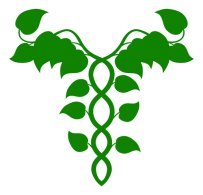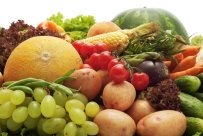NUTRITION AND DIET FOR EYE HEALTH

Tips and Advice From Experts
Healthy eyes are important for your well-being, and by taking the right diet and nutrition, you can retain amazing eyesight up into your older years. Contrary to popular belief, deteriorating sight is not a justifiable condition when you reach old age. Proper nutrition intervenes and helps either slow down or completely stops the decline of your vision. According to the World Health Organization (WHO), 80% of all vision impairment issues and blindness can be avoided through prevention and/ or treatment.
Sadly, most of the foods that we consume today are the leading causes of poor vision. The empty calories do not provide your eyes with the much-needed nutrition they need to operate at their best.
The Nutrition for Vision
Before we move on to the specific foods that help retain the quality of our vision, let us first look at the nutrients that should be in your daily diet.
1. Essential Fatty Acids
While reading “fatty acids” just might ring the alarm bells in your mind that anything remotely related to fats is harmful, but it is not so. There are certain fats which are essential to the human body and play a vital role in boosting the immune system and maintaining the integrity of the nervous system. Among these essential fats, Omega-3 fatty acids have been proven by research to develop and improve retinal function.
2. Lutein and Zeaxanthin
These nutrients, commonly found in green leafy vegetables and egg yolks, are vital for blocking the ultraviolet light which is known to cause light-induced oxidative damage to the eyes. This damage can lead to macular degeneration later.
3. Vitamin C (Ascorbic Acid)
This water-soluble antioxidant is found abundantly in fruits and vegetables. It helps maintain and repair the connective tissues in the body, including collagen which is found in the cornea of the eye. Lower levels of collagen can lead to the growth of glaucoma and cataracts, and it is important that the body is able to replenish its reserves with food items that help maintain a healthy level of collagen.
4. Vitamin E
The Age Related Eye Disease Study (AREDS) has shown that the individuals with early macular degeneration (AMD) who took vitamin E daily had a 25% lower chance of developing AMD to an advanced stage. Vitamin E is commonly found in nuts, sweet potatoes and fortified cereals.
5. Zinc
Zinc is the mineral that helps the body absorb essential nutrients like Vitamin A and other antioxidants. It helps create a protective pigment called melanin, which contributes to the overall health of the eye. In the eyes, zinc is located in the retina and choroid (vascular tissue under the retina).
Bite Right for Your Sight
Getting the right nutrients is important for your eye health and the foods rich in antioxidants and nutrients that are healthy for your heart are best for your eye health. Here is a list of food for the eyes, which include the essential minerals and nutrients mentioned above, and more!
1. Corn
A great source of lutein and zeaxanthin, the yellow corn is beneficial for eye health. The yellow pigment is essential for reducing the risk of Age-Related Macular Degeneration (ARMD). Enjoy corn by incorporating it into your daily meals that provide you some dietary fat, too.
2. Eggs
Egg yolks contain the yellow pigment responsible for lutein and zeaxanthin. A study revealed that consuming an egg daily increased the lutein levels by 26%, and zeaxanthin levels by 38%. If that was not enough, the study also found that the daily consumption of eggs did not alter the LDL or HDL cholesterol or triglycerides.
3. Olive Oil
Our eyes are vascular, so a diet that’s low in trans and saturated fat helps keep the blood vessels of the eyes healthy, reducing the risk of retinal diseases. Olive oil fits the requirements completely and is free of any trans fats and has extremely low levels of saturated fats. In addition to this, an Australian research reveals that the study subjects who reportedly consumed the most olive oil were 48% less likely to develop ARMD.
Pro tip: Look out for extra virgin olive oil when you’re out shopping—it gives an additional antioxidant boost that your eyes would appreciate.
4. Pistachios
Of all the nuts, pistachios are the only ones packed with Vitamin E, lutein and zeaxanthin, and are therefore, a treat for the eyes. Pistachios boost the absorption of carotenoids—the antioxidants that specialize in fighting cellular damage and protecting vision—due to the presence of mono and polyunsaturated fats.
5. Salmon
If you wish to consume higher levels of omega-3 fatty acids, consuming salmon is your best bet. Apart from housing a high level of healthy omega-3 fatty acids, salmon also includes Vitamin D, which is good for the eyes.
Check out this recipe for Smoked Salmon Pizza with Dill and Lemon, if you want to prepare a salmon dish at home.
6. Spinach, Kale, and other Dark, Leafy Greens
Dark, leafy green vegetables are the queens of vegetables. They are rich in both lutein and zeaxanthin. Consuming high amounts of this food would not only improve your vision, it will also maintain the improved vision for you.
Pro tip: Consume your choice of green leafy veggies with olive oil for maximum absorption, since lutein and zeaxanthin are both oil soluble.
7. Tomatoes
Tomatoes are rich in the ingredients that help improve and maintain your eyesight. Packed with carotenoids, lycopene (red carotenoid pigment) and Vitamin C, tomatoes are vision-protectors. It is always better to consume nutrients in their natural form rather than taking them in supplements, and tomatoes are a great food option to include in your daily diet for healthy eyes.

















